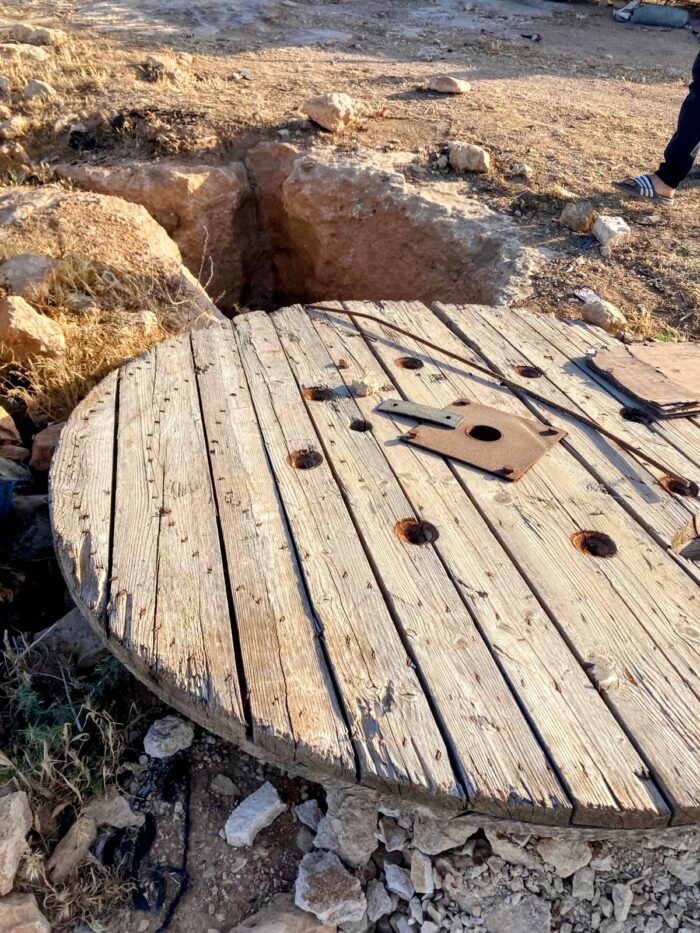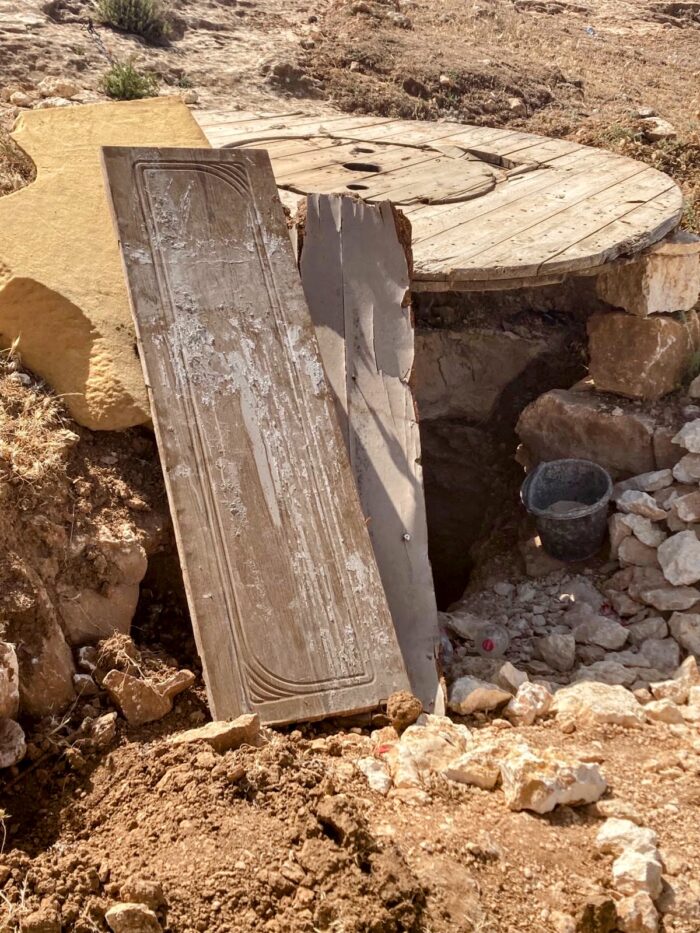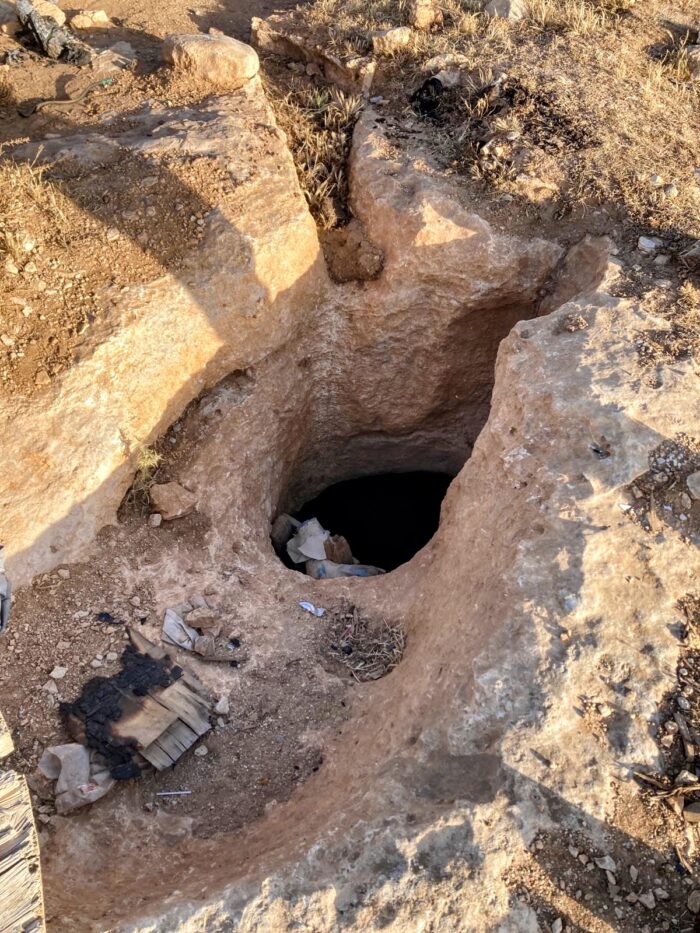Every evening, the father in Um Dorit works on a secret well with the hopes that they can soon have a dependable place to access water that the settlers don’t know about.
Donate to sustain the work, here!
His family cleans their main well every time settlers pour gasoline in it but it is a painstaking process. They are reasonably concerned that eventually the water will become too polluted to drink.
They own five other wells in the area that they can no longer access because settlers have taken them for their own use. According to Israeli law, all Palestinians can theoretically use the cisterns near the settlements, but no Palestinian would ever dare walk towards the settlements; venturing outside their house is risky enough.
In the day, the opening of the new well is camouflaged with wood and debris but when the sun sinks low on the horizon the father removes the cover and lowers himself inside to dig.
The Civil Administration prohibits construction in Area C even after Zionists destroy a family’s homes or well, so this is a dangerous act of resistance.
Over 48,000 Palestinians in the West Bank are not connected to any water supply network. On average, West Bank Palestinians consume <60 liters per person per day. In the Jordan valley, residents average <20 liters. In comparison, Israeli consumption is around 200 liters. When Palestinians have to buy water from private contractors, the cost is 3X greater than for Israelis.
The Civil Administration also disrupts water supplies. They have destroyed hundreds of cisterns, wells, and reservoirs. They require permits to even collect the little rainwater that falls, but rarely grants them. Israel has complete control of water resources and uses this power to carry out their goal of ethnic cleansing and forced removal of Palestinians from their ancestral lands.
More information on water rights in Masafer Yatta:
- +972 Magazine: In hottest summer ever, Masafer Yatta sears from water apartheid
- Society of St. Yves: Deprivation of Water as a Tool for Forcible Transfer: Cutting Off Water Lines from Masafer Yatta as a Model
- UN Human Rights Council: The allocation of water resources in the Occupied Palestinian Territory


